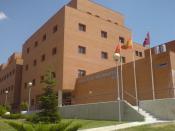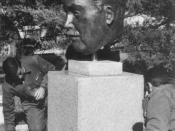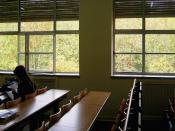hyperrhiz: new media cultures
Hyperrhiz.06 û Essays û Electronic Literature as an Information System
Electronic Literature as an Information System
Juan B. Gutierrez CAVIIAR (Advanced Research Center in Artificial Intelligence)
Mark C. Marino University of Southern California
Pablo Gervás Universidad Complutense de Madrid
Laura Borràs Castanyer Universidad Oberta de Catalunya
Abstract
Electronic literature is a term that encompasses artistic texts produced for printed media which are consumed in electronic format, as well as text produced for electronic media that could not be printed without losing essential qualities. Some have argued that the essence of electronic literature is the use of multimedia, fragmentation, and/or non-linearity. Others focus on the role of computation and complex processing. "Cybertext" does not sufficiently describe these systems. In this paper we propose that works of electronic literature, understood as text (with possible inclusion of multimedia elements) designed to be consumed in bi- or multi-directional electronic media, are best understood as 3-tier (or n-tier) information systems.
These tiers include data (the textual content), process (computational interactions) and presentation (on-screen rendering of the narrative). The interaction between these layers produces what is known as the work of electronic literature. This paradigm for electronic literature moves beyond the initial approaches which either treated electronic literature as computerized versions of print literature or focused solely on one aspect of the system. In this paper, we build two basic arguments. On the one hand, we propose that the conception of electronic literature as an information system gets at the essence of electronic media, and we predict that this paradigm will become dominant in this field within the next few years. On the other hand, we propose that building information systems may also lead in a shift of emphasis from one-time artistic novelties to reusable systems. Demonstrating this approach, we read works...


